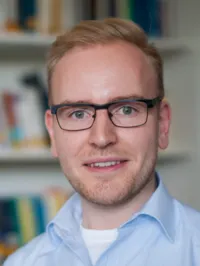Talk: Peter Neuhaus (February 11, 2022 at 11:00 AM, LNT Seminar room N2409)
Talks |
Design of Wideband Communications Systems: Mitigating the Analog-to-Digital Conversion Bottleneck

Peter Neuhaus
TU Dresden
Vodafone Chair for Mobile Communications Systems
Abstract:
Future wireless communications systems are envisioned to utilize the vast amount of available spectrum in the sub-terahertz bands above 100 GHz to provide data rates of 100 Gbit/s and beyond. However, the analog-to-digital converter (ADC) power consumption is anticipated to be a significant bottleneck if conventional system designs are employed at these frequencies, e.g., because the ADC power consumption grows quadratically with the input bandwidth for wideband systems. Hence, we study two system designs aiming to mitigate the ADC bottleneck. First, we propose a holistic design of an acquisition system for a multivariate analog input process, intending to recover a random parameter vector, referred to as the task. Conventional designs commonly employ task-agnostic ADCs designed to minimize the mean squared error (MSE) in reconstructing the analog input signal. In contrast, we aim to jointly optimize the acquisition system in light of the task under a constraint on the bit rate at the output of the ADCs, which relates to the system’s implementation complexity and power consumption. Second, as an alternative approach, we consider shifting the resolution from the amplitude to the time domain, i.e., by employing 1-bit quantization and temporal oversampling. This is a promising approach to mitigate the ADC bottleneck because the power consumption typically grows exponentially with the amplitude resolution measured in bits. We present a zero-crossing modulation (ZXM) transceiver design for such systems, including an efficient mapping of bits onto the distance between zero-crossings, which encode the information, and a receiver generating soft information despite 1-bit quantization. The presented transceiver design is evaluated in terms of spectral and energy efficiency.
Biography:
Peter Neuhaus received the B.Sc. and M.Sc. degrees (with distinction) in electrical engineering, information technology, and computer engineering from RWTH Aachen University in 2014 and 2017, respectively. He is currently pursuing the Ph.D. degree with the Vodafone Chair Mobile Communications Systems at Technische Universität Dresden. His research interests lie in the areas of signal processing and communications.